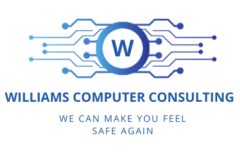A new computer virus is doing the rounds, called Internet Security 2010. It has been developed to resemble anti-virus software, which tells users that they have numerous infections on their PCs, and they need to install the software to eradicate them.
According to Webroot, once downloaded a few Trojan viruses infiltrate the PC through the program. It also instantly commences, like normal security software, every time Windows loads.
As the Trojan virus blocks some computer applications, users receive a warning stating “File is infected”. The virus even edits networking settings to block sites including Facebook, YouTube, Twitter, Wikipedia and Microsoft”s Bing search engine.
Once the PC gets infected by Internet Security 2010, the next time Windows loads, users receive false alert claiming that “Worm.Win32.NetSky” was found on the system. This message is fake and should be ignored.
Emulating any other anti-virus software, Internet Security 2010 runs a fake scan of the system. The scan report lists several infections of sectors and files, but when attempts are made to eradicate them, users are first asked to purchase the Internet Security.
Even once you have got rid of it, you”ll still need to repair the damage it has done to your ability to browse the web.
“Hackers are making millions by tricking innocent internet users into believing that their computers are virus-infected or have other security problems,” says Graham Cluley, Senior technician at Sophos.
“Having worried you about (usually non-existent) threats on your PC they usually try and trick you into downloading software or visiting a webpage to purchase a “clean-up” solution. We see thousands of new examples of fake anti-virus software every day, and some of them are supported by very professional-looking websites pretending to be legitimate security vendors.”
